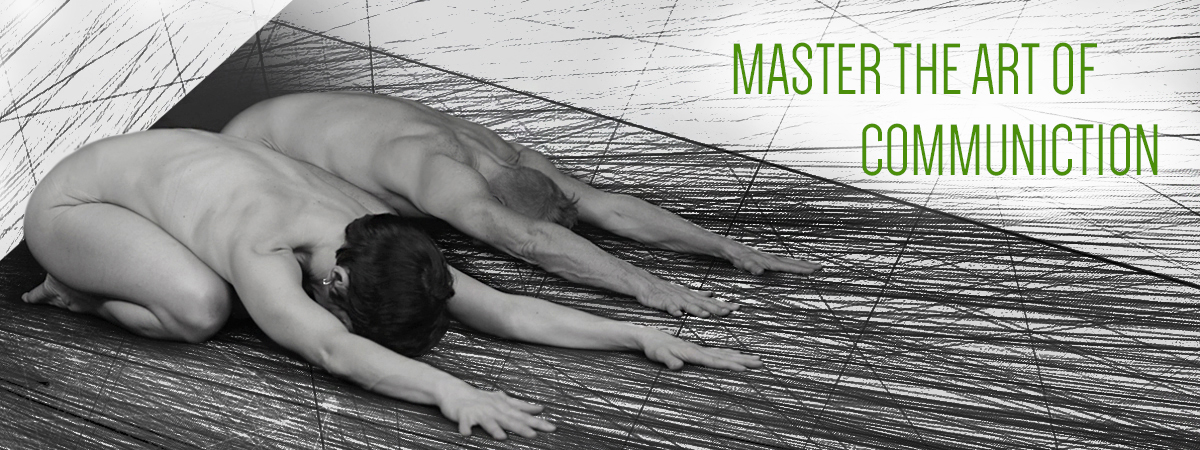
Whether it’s in your personal life or your professional life, mastering the art of communication is the key to developing good relationships.
Communication is one of the most rich and beautiful art forms that we as human beings can aspire to master. Just think about the huge variety of communication situations that you face. Delivering a powerful message in a business situation, negotiating a difficult issue with your partner without letting your emotions get the best of you, leaving an effective voicemail…
When you attempt to get your message across to others, think of it as though you start with a blank canvas and then start to paint a picture. Most people assume, they only have to use a few basic brushes to paint their picture, but to create a masterpiece that powerfully conveys your message to others, there are many tools available. To communicate effectively, you just need to be aware of them and use them with purpose.
Here are our TOP 8 TOOLS to master the art of communication.
#1 Be Completely Comfortable Within Yourself
To be effective in communicating with others, you have to be completely comfortable within yourself. When you communicate from a place where you know who you are and what you want and are comfortable with it, you can hear and try to understand the opinion of others without the need to interrupt or to be ‘right’. Keep in mind, you don’t have to always agree with everybody else, but you should genuinely try to understand another person’s perspective.
#2 Learn to Listening
People pull away from you if you don’t properly listen and have a habit of interrupting them. Learn to listen to what the other person has to say and wait patiently until they have finished their thought before you start to speak. Learning to listen also means to keep an open mind and stay focused on the speaker rather than let your mind wander and just wait for your opportunity to speak again.
#3 Don’t Judge
There are always two sides of the story and there usually isn’t a right or wrong. People who are in disagreement or conflict tend to judge each other during difficult conversations even if they are generally on good terms. Try to see the other person’s perspective and hold off from judging. You never know where the other person is coming from and how they perceive a situation. Keep an open mind, try to see the other side of the story and respect different opinions and perspectives.
#4 Put Yourself in Their Shoes
We’ve all heard the expression ‘put yourself in my shoes’ plenty of times. What does that actually mean? It means to respect the experience someone else has by imagining it is you living it instead of them. When you put yourself in their shoes and imagine having the other person’s experience, you will develop a better idea of what they are feeling and can harbor understanding.

#5 Be Fully There
To have an actual discussion and successfully communicate, put all other activities to the side and be completely with the person who is talking. Don’t check your smart phone or engage in anything else but the actual discussion. Try your best to be fully present in the conversation and with the person in front of you.
#6 Be Aware of Your Emotional Level
The art of communication isn’t just limited to words. Beyond the verbal communication, we communicate on a non-verbal level through our body language and our eyes as well as from an emotional state. Beware of your emotional state, which can range from total apathy to flaming rage and make sure that you operate form a place as close as possible to the center of your emotional spectrum. Especially before responding to a difficult situation it is imperative to step back and check your emotional pulse. Words have great power and you can’t take them back so use great care before reacting on an emotional level.
#7 Don’t Let Fear Interfere
Nervousness, anxiety, the need to take full control are signs of fear and a way your brain is warning you to respond quickly to what you assume to be danger or bad experiences. Fear can make you insecure and you start to doubt yourself and others. Don’t let fear interfere and stop you from having a conversation based on honesty, trust, faithfulness and loyalty.
#8 Beware of Assumptions
As a communicator, don’t make assumptions but let the other parties involved in the conversation explain themselves and their position before you jump to conclusions. To avoid misunderstandings, seek out all the information you need before you react and maintain an attitude of respect and honesty.
Whether in conflicts or negotiations or just your day-to-day communications, use these tools to master the art of communication and improve your relationships significantly. You don’t need years to see progress. Just put the above tools into daily practice and you will notice how your new and improved communication skills will make your life a whole lot easier.
BECOME A COMMUNICATION ARTIST
Joschi & Monika
#BoldNaked
